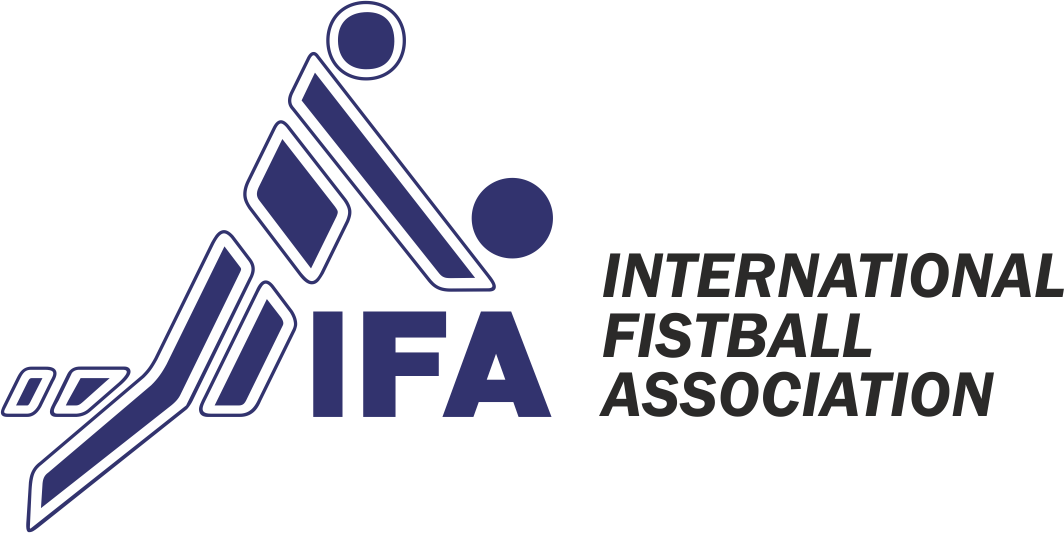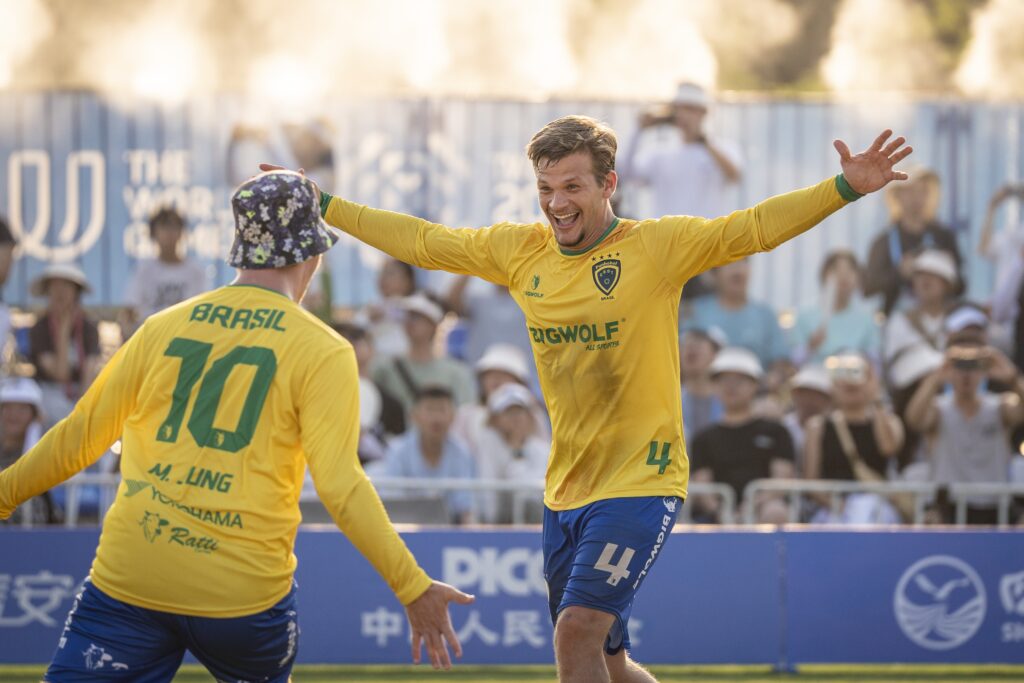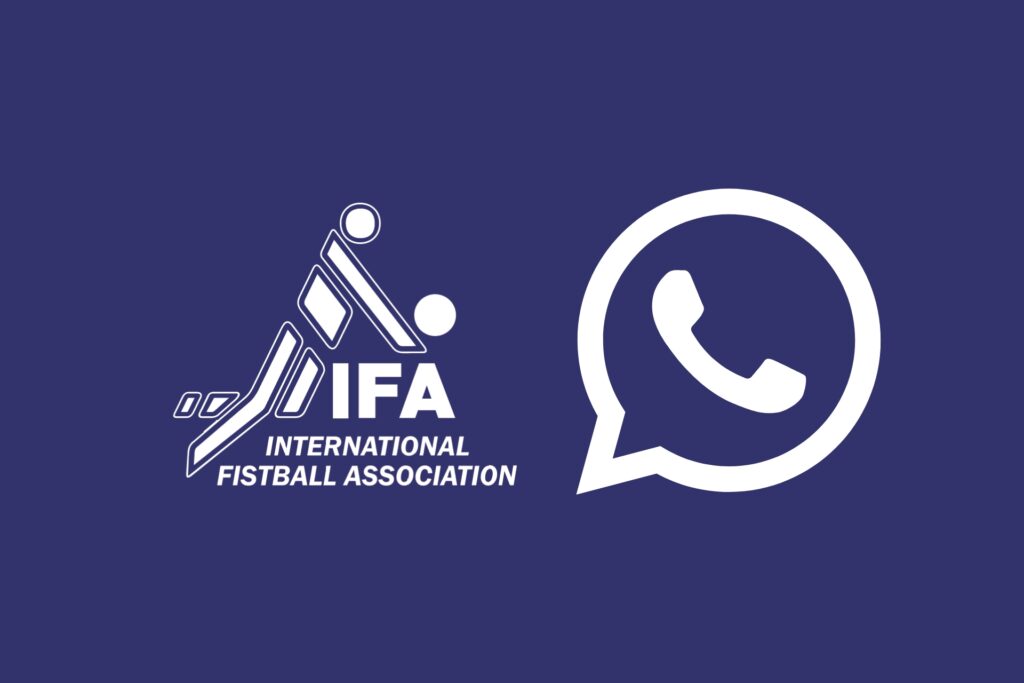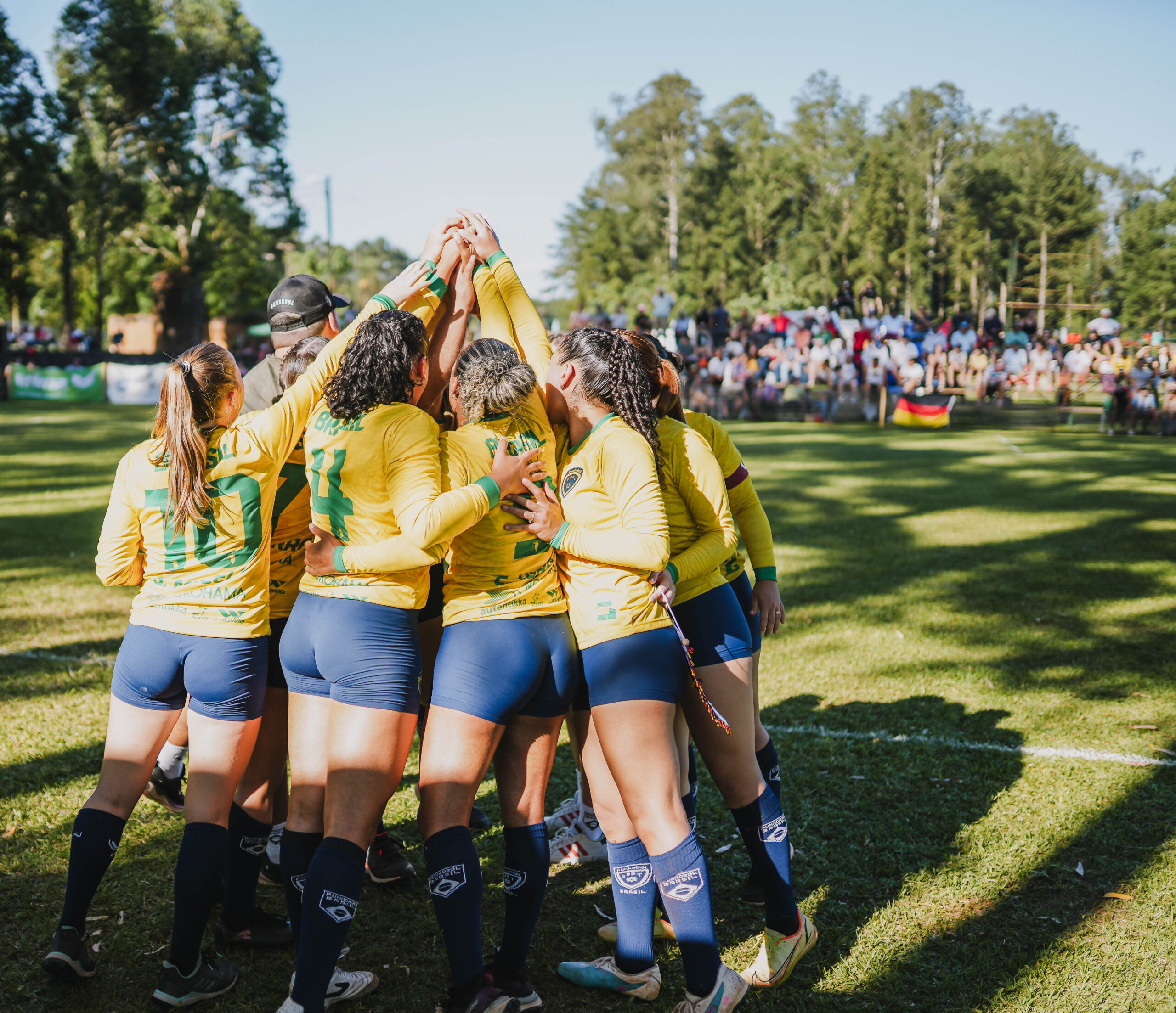A new chapter begins for Fistball in New Zealand: Renè Kempf has been elected as the new President of the national federation. The long-time coach of the New Zealand Men’s National Team is a familiar and respected figure within the Fistball community.
Under Kempf’s leadership, the men’s team impressed with spirited performances and strong teamwork at the World Games in Chengdu, while the New Zealand Women’s Team also earned recognition for their determination and progress. His energy and dedication on the sidelines have played a key role in developing the sport across the country.
Now, Kempf takes on the presidency at a pivotal time — a period marked by steady growth, new challenges, and ambitious plans for the future of Fistball in New Zealand.
Renè, congratulations on your election! You are taking over the presidency after a successful period as a coach. What are your most important strategic goals that you aim to achieve with Fistball New Zealand over the next two to three years?
René Kempf: Strengthening of the two current centres of Fistball in the cities of Christchurch and Timaru is my primary focus so that we can grow the sport in our country with a strong base. We also do not have much depth in the area of administration and coaching, we currently rely heavily on our current international players so this is also an area that I would like to see us make some progress. We will be hosting an Asia-Pacific Fistball Tournament in New Zealand in November 2026 so this will be a major focus for us for next year.
The World Games Chengdu 2025
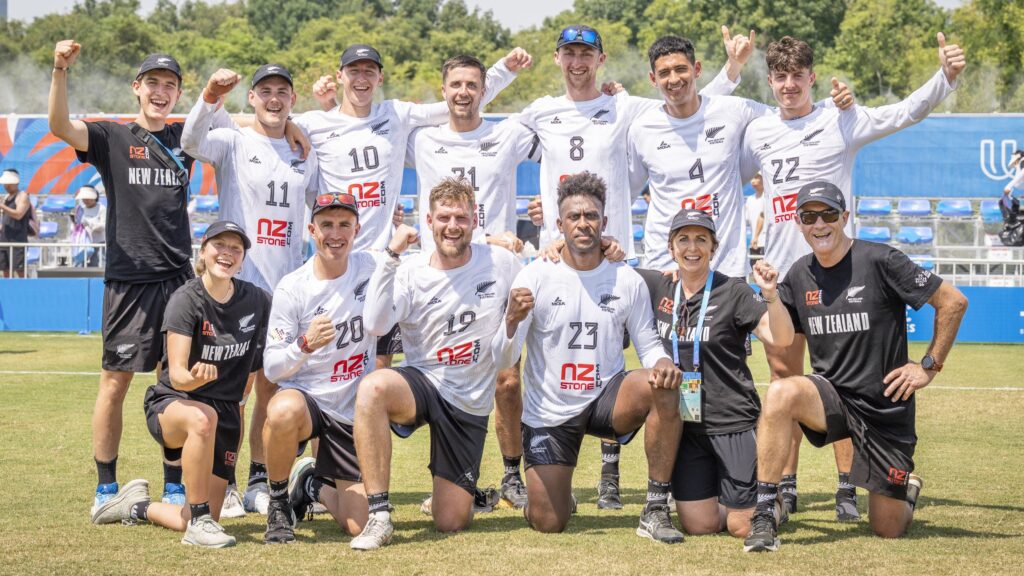
The World Games in Chengdu were a major appearance for the New Zealand teams. What were your personal highlights of that tournament?
René Kempf: Witnessing the Women win their opening match over Chile was my major highlight, experiencing the Tournament has given me a taste for more and I wish for both teams to qualify again for the World Games in 2029. And: We were thankful for Emlyn Evans from Australia for his coaching of the NZ Women’s team.
And what lessons are you drawing for the further development of New Zealand Fistball?
René Kempf: To continue to improve and compete at a high level we must build more depth in our player base, we have begun introducing new players to the sport at a high school in Timaru by running coaching classes. This has been very successful with some under 18 Boys now training each week. I would like to see this established in others schools in both Timaru and Christchurch.
Youth Development
With the increase in youth development, there is also the possibility of an under-18 girls’ and boys’ team participating in the 2026 World Championships in Switzerland. How far along are the plans for this, and what does it mean for the future of the sport in New Zealand?
René Kempf: Currently we are looking very likely to being able to commit to the Boys being at this Tournament due to the progress previously mentioned and alongside this we already had some young men who are keen to pursue Fistball. The Girls program still has a bit further to go but hopefully in November with a social competition being re-established in Christchurch and the 25/26 season getting going in Timaru we may also have enough Girls as well. Ideally these teams will travel with the Men’s and Women’s national teams to Australia in April 2026 for our Annual Trans-Tasman series of matches.
The Funding Challenge
As you mentioned, the U18 World Championship participation depends on financing. What are the biggest hurdles in fundraising, and how do you plan to win new sponsors or supporters for Fistball in New Zealand?
René Kempf: Unfortunately, as Fistball is such a minor Sport in New Zealand there is zero funding available for our sport, all the money is directed to a handful of what are regarded as the main sports. Every player for Fistball must raise their own funds to play locally and attend tournaments. For the national teams we have been fortunate to have the uniforms and some other clothing covered by sponsorship in the past but that has been the extent of it. We have used such initiatives as Quiz Nights and car washes in the past as well and individual players seeking financial assistant from their families or employers.
Role as Coach vs. President

After your time as a coach, you are now in an administrative function. What do you miss about the sideline, and which of your experiences as a National Coach helps you the most in the role of President?
René Kempf: I am not going to miss the coaching role as last week it was decided by the new NZ Board that I should carry on in the National Men’s Team coaching role. When I agreed to step into the role as President it was subject to me having a team join me on the Board who were willing to do the work with oversight and leadership from myself. As a coach I have been fortunate to meet many other coaches and administrators in the international Fistball family. Having these connections will be very helpful in my new role as President.
Cooperation with Associations
How important is international networking, especially with the International Fistball Association (IFA) and other Fistball nations, for the development of Fistball New Zealand?
René Kempf: I think this is very important. One of the strengths of Fistball is the sense of being part of a Fistball family. In the past we have had the pleasure of hosting several young players as they have helped with coaching and preparing our national teams for international events. We would love to host some more young people at any time, especially now as we look to develop the Under 18 players.
Perception in New Zealand
How do you assess the general awareness and acceptance of Fistball in New Zealand? Do you see opportunities to make the sport more visible in the media?
René Kempf: Unfortunately, we have not got much national awareness. With the hosting of the Asia/Pacific Tournament in New Zealand next year we will endeavour to capitalise on this with the media.
Personal Motivation
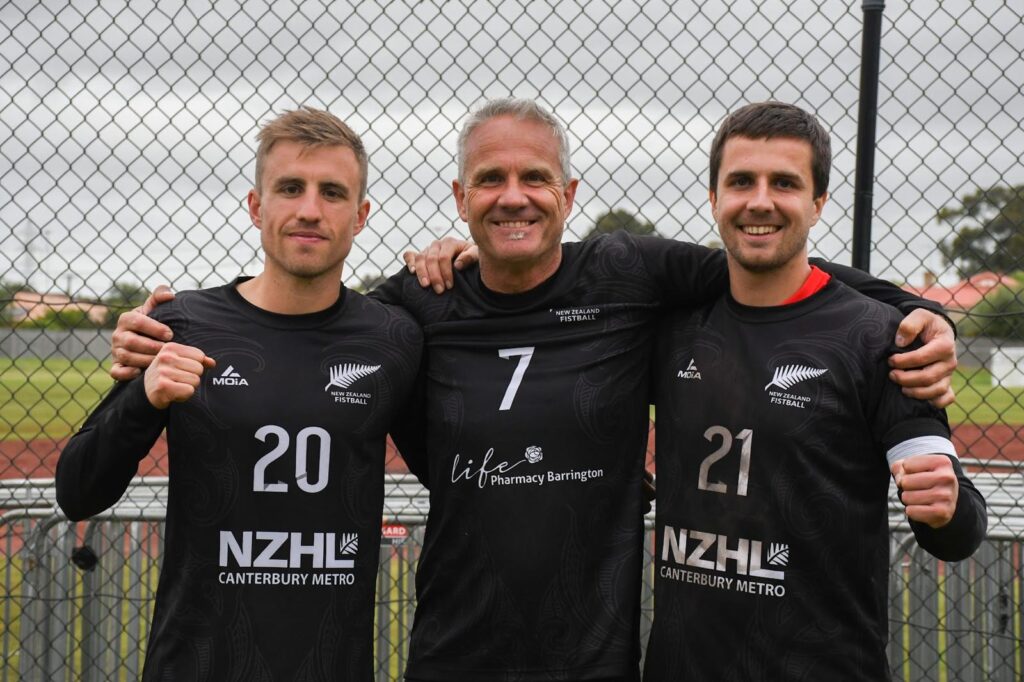
What personally motivates you the most to invest your time and energy into this demanding new task and to drive Fistball forward in New Zealand?
René Kempf: I started building and coaching the Timaru men just after the 2019 men’s World Championship in Winterthur. My two sons Samuel the current captain and Jesse were part of this team, and I had the pleasure of attending the tournament. I was then appointed the national teams coach and have prepared the team for several Trans-Tasman battles along with the 2023 World Championships in Mannheim and the World Games in Chengdu. I desire to provide further opportunities for them to compete at an international level and to be able to perform at the highest level that we can achieve together. After that there will be opportunities for my grandchildren….
„Die Grundlagen für die Zukunft schaffen“ – Renè Kempf über seine neue Rolle als Präsident in Neuseeland
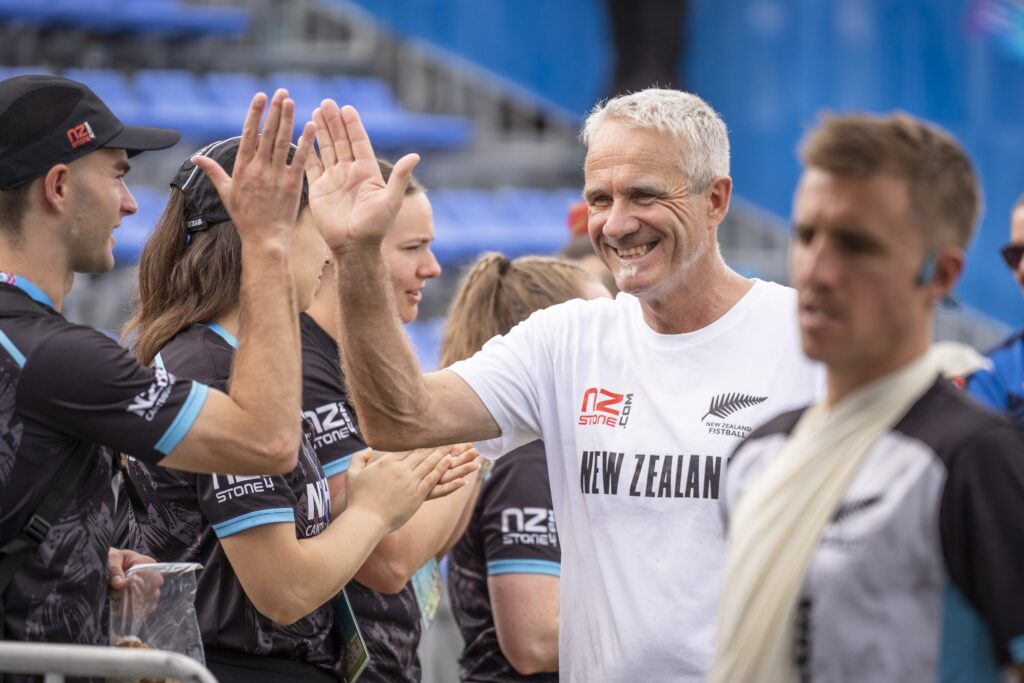
Ein neues Kapitel beginnt für den Faustball in Neuseeland: Renè Kempf wurde zum neuen Präsidenten des nationalen Verbandes gewählt. Der langjährige Trainer der neuseeländischen Männernationalmannschaft ist in der internationalen Faustballgemeinschaft ein bekanntes und geschätztes Gesicht.
Unter Kempfs Leitung überzeugte das Männerteam mit leidenschaftlichen Auftritten und starkem Teamgeist bei den World Games in Chengdu, während auch die neuseeländische Frauenmannschaft mit Entschlossenheit und Fortschritt beeindruckte. Seine Energie und sein Engagement an der Seitenlinie haben maßgeblich zur Entwicklung des Sports im ganzen Land beigetragen.
Nun übernimmt Kempf das Präsidentenamt in einer entscheidenden Phase – einer Zeit des stetigen Wachstums, neuer Herausforderungen und ehrgeiziger Pläne für die Zukunft des Faustballs in Neuseeland.
Renè, herzlichen Glückwunsch zu deiner Wahl! Du übernimmst das Präsidentenamt nach einer erfolgreichen Zeit als Trainer. Was sind deine wichtigsten strategischen Ziele für die nächsten zwei bis drei Jahre mit Fistball New Zealand?
Renè Kempf: Die Stärkung der beiden aktuellen Faustball-Zentren in den Städten Christchurch und Timaru ist mein Hauptanliegen, damit wir den Sport in unserem Land auf einer stabilen Basis weiterentwickeln können. Wir haben derzeit noch nicht viel personelle Tiefe im Bereich Verwaltung und Coaching – momentan stützen wir uns stark auf unsere internationalen Spieler. Auch hier möchte ich Fortschritte sehen. Außerdem werden wir im November 2026 ein Asien-Pazifik-Faustballturnier in Neuseeland ausrichten, was im kommenden Jahr ein großer Schwerpunkt für uns sein wird.
Die World Games Chengdu 2025
Die World Games in Chengdu waren ein großer Auftritt für die neuseeländischen Teams. Was waren deine persönlichen Highlights dieses Turniers?
Renè Kempf: Mein größtes Highlight war, den Sieg der Frauen im Auftaktspiel gegen Chile mitzuerleben. Das gesamte Turnier war eine tolle Erfahrung, die Lust auf mehr gemacht hat. Ich wünsche mir, dass sich beide Teams erneut für die World Games 2029 qualifizieren.
Und welche Lehren ziehst du für die weitere Entwicklung des Faustballs in Neuseeland?
Renè Kempf: Um uns weiter zu verbessern und auf hohem Niveau zu konkurrieren, müssen wir unsere Spielerbasis verbreitern. Wir haben in einer High School in Timaru damit begonnen, neue Spieler durch Trainingseinheiten an den Sport heranzuführen – mit großem Erfolg. Einige U18-Jungs trainieren mittlerweile regelmäßig. Ich würde mir wünschen, dass wir solche Programme auch an weiteren Schulen in Timaru und Christchurch etablieren.
Jugendentwicklung
Mit dem wachsenden Fokus auf Jugendarbeit ergibt sich auch die Möglichkeit, U18-Mädchen- und Jungenteams zur Weltmeisterschaft 2026 in der Schweiz zu entsenden. Wie weit sind die Planungen, und was bedeutet das für die Zukunft des Sports in Neuseeland?
Renè Kempf: Derzeit sieht es sehr vielversprechend aus, dass wir mit den Jungen an diesem Turnier teilnehmen können – dank der bereits erwähnten Fortschritte und des Engagements einiger junger Männer, die Fistball aktiv betreiben wollen. Das Mädchenteam ist noch im Aufbau, aber mit der Wiederbelebung einer Freizeitliga in Christchurch im November und dem Start der Saison 2025/26 in Timaru hoffe ich, dass wir bald genug Spielerinnen haben. Idealerweise reisen beide Nachwuchsteams im April 2026 gemeinsam mit den Frauen- und Männernationalmannschaften zur jährlichen Trans-Tasman-Serie nach Australien.
Die Finanzierungsfrage
Wie du erwähnt hast, hängt die Teilnahme an der U18-Weltmeisterschaft stark von der Finanzierung ab. Was sind die größten Hürden bei der Mittelbeschaffung, und wie wollt ihr neue Sponsoren oder Unterstützer für Fistball in Neuseeland gewinnen?
Renè Kempf: Leider ist Faustball in Neuseeland noch eine Randsportart, für die es keine staatliche Förderung gibt. Sämtliche Mittel fließen in einige wenige große Sportarten. Jeder Faustballspieler muss seine Teilnahme selbst finanzieren, sowohl bei lokalen Spielen als auch bei internationalen Turnieren. Für die Nationalteams konnten wir bisher dank Sponsoren zumindest die Trikots und Teile der Ausrüstung abdecken, aber das war auch schon das Maximum. In der Vergangenheit haben wir Geld durch Quizabende, Autowaschaktionen und private Unterstützung von Familien oder Arbeitgebern gesammelt.
Rolle als Trainer und Präsident
Nach deiner Zeit als Trainer bist du nun in einer administrativen Funktion tätig. Vermisst du die Seitenlinie – und welche Erfahrungen aus deiner Zeit als Nationaltrainer helfen dir jetzt im Präsidentenamt?
Renè Kempf: Ehrlich gesagt, muss ich das Coaching gar nicht vermissen – denn letzte Woche hat das neue neuseeländische Board beschlossen, dass ich weiterhin das Männernationalteam trainiere. Als ich das Präsidentenamt übernahm, war das an die Bedingung geknüpft, dass ich ein engagiertes Team im Vorstand habe, das die operative Arbeit übernimmt, während ich die strategische Leitung innehabe. Als Trainer hatte ich die Gelegenheit, viele internationale Trainer und Funktionäre kennenzulernen – diese Kontakte werden mir in meiner neuen Rolle sehr helfen.
Zusammenarbeit mit Verbänden
Wie wichtig ist die internationale Vernetzung – insbesondere mit der International Fistball Association (IFA) und anderen Nationen – für die Entwicklung des Faustballs in Neuseeland?
Renè Kempf: Ich halte das für sehr wichtig. Eine der großen Stärken im Faustball ist das Gefühl einer weltweiten Gemeinschaft. In der Vergangenheit konnten wir bereits einige junge internationale Spieler in Neuseeland begrüßen, die uns beim Coaching und bei der Vorbereitung auf Turniere unterstützt haben. Wir würden uns freuen, künftig wieder solche Gäste begrüßen zu dürfen – insbesondere jetzt, da wir unsere U18-Teams aufbauen.
Wahrnehmung in Neuseeland
Wie schätzt du die allgemeine Bekanntheit und Akzeptanz von Faustball in Neuseeland ein? Gibt es Chancen, den Sport in den Medien sichtbarer zu machen?
Renè Kempf: Leider ist unsere nationale Bekanntheit noch gering. Aber mit der Austragung des Asien-Pazifik-Turniers im kommenden Jahr wollen wir das ändern und die Medienaufmerksamkeit gezielt dafür nutzen.
Persönliche Motivation
Was motiviert dich persönlich, so viel Zeit und Energie in diese anspruchsvolle Aufgabe zu investieren und den Faustball in Neuseeland weiter voranzubringen?
Renè Kempf: Ich habe kurz nach der Männer-Weltmeisterschaft 2019 in Winterthur begonnen, das Team in Timaru aufzubauen und zu trainieren. Meine beiden Söhne Samuel (aktueller Kapitän) und Jesse waren Teil dieses Teams, und ich hatte das Vergnügen, das Turnier mitzuerleben. Danach wurde ich Nationaltrainer und habe das Team auf mehrere Trans-Tasman-Duelle, die Weltmeisterschaft 2023 in Mannheim und die World Games in Chengdu vorbereitet. Ich möchte meinen Spielern die Möglichkeit geben, weiterhin international zu konkurrieren und ihr Potenzial auszuschöpfen. Und vielleicht gibt es danach schon Chancen für die nächste Generation – meine Enkelkinder.
